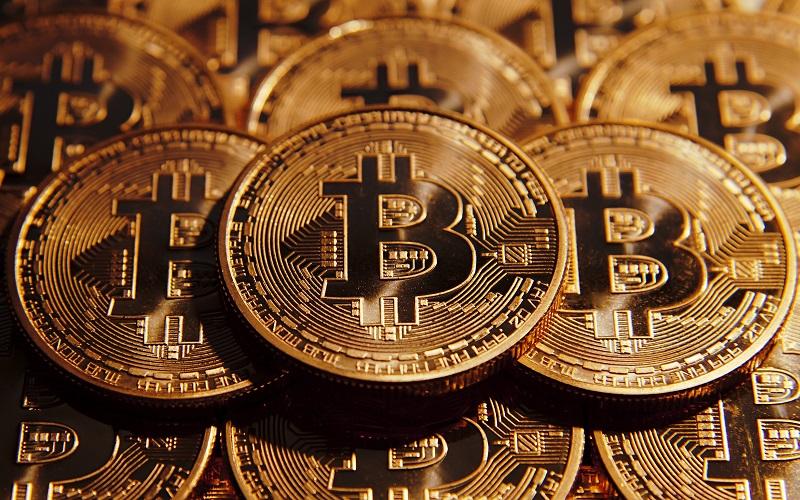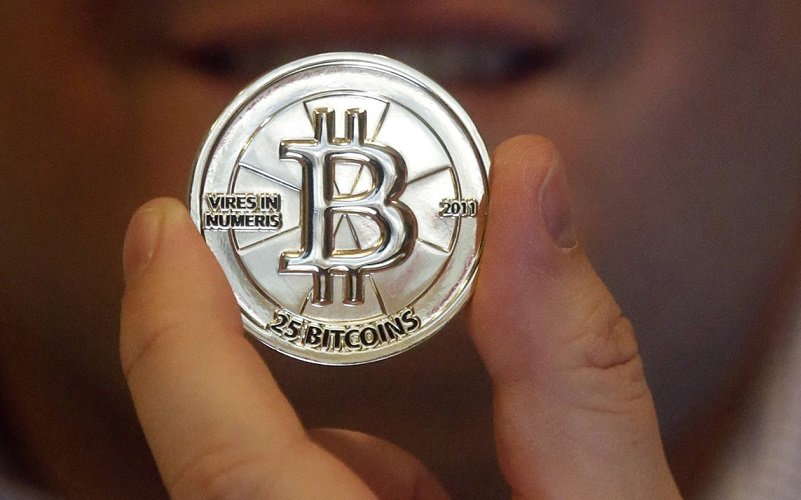PKU MBA Deep Dive: Did China Just End The Fight For Digital Currency Supremacy?
Something transformative occurred this past January. Going largely unnoticed, the People’s Bank of China (PBOC) released a statement revealing that is has been working on its very own cryptocurrency – a digital currency which leverages encryption techniques to regulate the generation per unit of currency and verify the transfer of funds.
The PBOC statement revealed that, since 2014, China’s central bank has been working with both Citibank and Deloitte & Touche to determine how best to build and issue a cryptocurrency. Further, there are plans in place to introduce this new currency “as soon as possible.”
This post is brought to you by:

A PBOC-controlled cryptocurrency offers China several obvious advantages such as lowering the costs associated with issuing and circulating traditional currencies; reducing money laundering and tax evasion; improving the convenience and transparency of economic transactions; and enhancing the PBOC’s control over the money supply and currency circulation. However, this has caused concern among some analysts and cryptocurrency enthusiasts: what will be the impact on the current reigning cryptocurrency, Bitcoin?
Before tackling this question, is it probably wise to offer a brief overview of Bitcoin.

Bitcoin, the most recognizable cryptocurrency in the world, is like any other currency in that it can be exchanged for goods and services. It differs in that is a decentralized peer-to-peer network, meaning it has no central authority and is not backed by any traditional currency. Instead, Bitcoin is supported by a multitude of interested parties; all active participants in the economy and supporters of its infrastructure.
Bitcoins are basically a string of digital numbers created through a process known as mining. Mining is the act of committing computational power to the Bitcoin system. The easiest way to understand mining is to think of it as the process of trying to solve a complex mathematical equation by systematically trying every possible solution. Each time a problem is solved, a block is created and added to previously created blocks creating a linear, chronological, chain. Blocks are historical accounts – a kind of public ledger – of all the Bitcoin transactions ever executed and serve as both a record and a security measure.

Every time a new block is created, Bitcoins are rewarded, though the amount of Bitcoins rewarded is not fixed. In fact, the amount awarded is halved roughly every four years, ensuring that Bitcoins are a finite resource. For example, if a total of 10.5 million Bitcoins are created in the first four years, the following four years of mining would yield 5.25 million. The next four years would then generate 2.625 million Bitcoins and so on. Because of this rule, the total supply of Bitcoins is algorithmically destined to never exceed 21 million units. It is this which gives Bitcoins their value.
Though this is a massive oversimplification of Bitcoin, it is sufficient to examine why proponents of Bitcoin might be worried about the currency's future, in light of China's recent announcement. With this base understanding, we can ponder what might be the concerns and consequences of a PBOC-backed cryptocurrency.

Most concern stems from the fact that China is, by far, the largest market for Bitcoins in the world. Though few would have guessed that a radical decentralized alternative to physical currencies would thrive in China's political and economic environment, Chinese regulators – in stark contrast to the efforts of other world governments to regulate, tax and control Bitcoin – have largely taken a hands-off approach as it pertains to Bitcoin exchange. This has paved the way for Chinese domination at three vital levels of the Bitcoin network: mining, market, and manufacturing.
Concerns at the mining level
According to the most conservative estimates, Chinese miners account for 30-60 percent of all Bitcoin miners. Should Chinese miners be incentivized to stop mining Bitcoins, or to mine another currency in lieu of Bitcoin, the entire network could stall due to the difficulty adjustments inherent to Bitcoin's design. As mentioned, the total amount of Bitcoins awarded is automatically halved every four years. This means, for the first four years, a block will be mined every 10 minutes and yield 50 Bitcoins, on average. The number of Bitcoins produced by each individual block, however, changes to reflect the total processing power committed to mining. In other words, if we continue to interpret mining as solving for a complex mathematical equation, this equation automatically becomes more difficult to solve as the total processing power committed to mining increases. So, if all Chinese miners suddenly stopped, it is conceivable that the remaining miners would not possess the processing power required to mine the next block in a timeframe such that the rate of creation of Bitcoins be maintained.
Concerns at the market level
Another major concern is that the volume of Bitcoin trading might plummet. Chinese people have been well ahead of the curve as it pertains to their adoption of Bitcoin as a viable currency. Indeed, many have pointed to the Chinese people's experience and comfort using preexisting digital currencies, such as Q coins, as a possible explanation. Yet, there are certainly other contributing factors such as the fact that Chinese dedicated Bitcoin exchange platforms like the BTCC, or Bitcoin China, do not charge trading fees, presenting an attractive opportunity to circumvent China’s overseas investment limit. Bitcoin is a vehicle whereby people can move money out of China with little to no hassle, freeing Chinese Bitcoin owners to transact with international merchants and consumers. Because of the lack of fees, it is faster and cheaper than traditional money transfer methods such as Western Union. As it stands, the BTCC functionally controls the Bitcoin market as nearly ¾ of the traded Bitcoin volume occurs on this exchange.
Concerns at the manufacturing level
A third concern is that the ASIC hardware necessary to mine Bitcoin is almost exclusively manufactured in China. Should producers be incentivized to stop manufacturing the hardware, there is no telling how long it will take for the Bitcoin network to grow back to its current size, especially if there is an exodus of Chinese miners. Additionally, the Bitcoin network would likely suffer through an era of increased vulnerability to consolidated operations for large processing, or hashing, power as remaining miners might attempt to increase their influence over the entire Bitcoin network by assuming control of a larger portion of total mining.

While these and other concerns are justified, they may be premature. The PBOC's statement did not outline a specific timeline for their cryptocurrency, and it is certainly plausible that nothing will ever come to fruition. The PBOC, Citibank and Deloitte & Touche might conclude that a central bank backed currency is too difficult to regulate, or they might find that such a cryptocurrency doesn't integrate well into existing platforms like Alipay or WeChat. It is simply too early to say with any certainty what effect the PBOC's move will have on the Bitcoin community. All that is certain is that, no matter what China decides to do, it will impact the Bitcoin network viability as a currency, one way or another.
If any of you would like any clarifications, please leave your question in the comments.

This has been the fifth in a series of deep dives conducted by the Peking University Guanghua School of Management MBA program. The first, exploring the problems with recycling in Beijing, can be read here. The second about the psychology of shopping can be read here, the third installment about how electric cars might solve Beijing's pollution problem can be read here, and finally, the fourth about how Tmall is aiding M&A can be read here. At Peking University, we emphasize that business in China is more than just management skills. Explore. Discover. China. Learn more at mba.pku.edu.cn/english or read our brochure. Follow us on Twitter, Facebook, LinkedIN and Instagram.
Photos courtesy of the Guanghua School of Management






